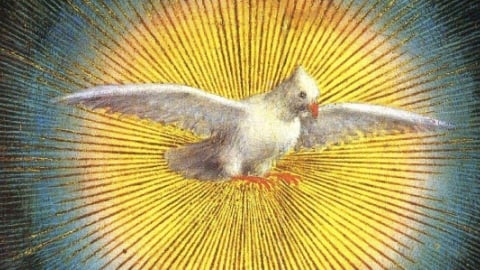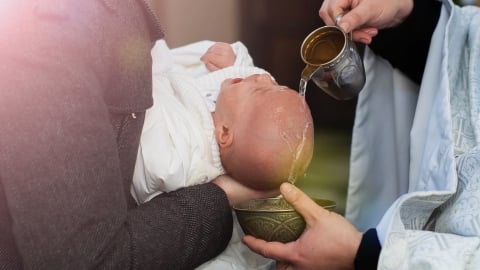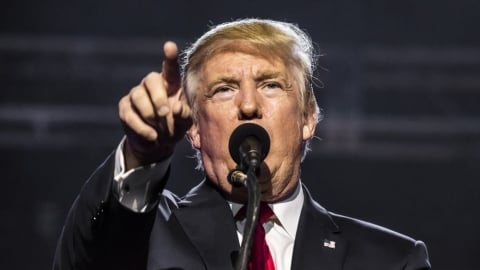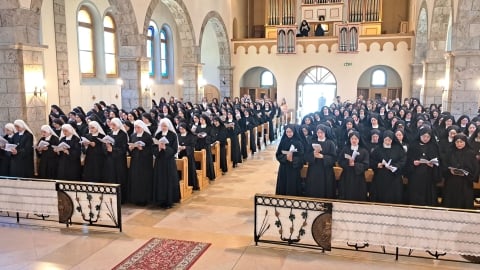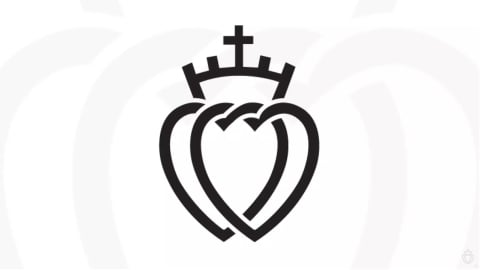Tradition: ever young, ever new

In the wake of the huge anti-abortion rally (40 years after Roe v. Wade), Washington Post reporter, Ashley McGuire, warned the world that the Catholic youth are becoming more traditional in all areas of their faith and culture...
Pastor's Corner
5th Sunday of January: Sexagesima Sunday
In the wake of the huge anti-abortion rally (40 years after Roe v. Wade), Washington Post reporter, Ashley McGuire, warned the world that the Catholic youth are becoming more traditional in all areas of their faith and culture in an article entitled “The new (old) Catholic Church”. She comments that today’s new fad is to go back to the eternal Church—teaching and praying. We provide here some pertinent excerpts from her important observation.[1]
We must thank God, but above all pray for this new generation (who the reporter calls “millenials”), that it may fully recognize and return to sanity by embracing the fullness of the Catholic Faith as contained in Tradition. This complete conversion of the heart is truly the work of God at its most intimate plane.
Extracts from The Washington Post
My generation of Catholics, men and women in their 20s and 30s, inherited a suffocating spiritual ennui inside the church and a culture of death, promiscuity, sadness, and fear outside her doors. We were born into a world where millions of babies die of abortion annually, where countless more unborn babies are suspended silently in freezers, where we are told gender is random and marriage is amorphous and dissolvable. We inherited hell on earth.
Some Catholics, like myself, are converts away from Protestantism, recognizing that the only institution in the world that has stood firm through the millennia on the most important social issues of the day is the Catholic Church. Others grew up with rogue nuns, priests making up the liturgy, sex-abuse scandals, squishy bishops, etc. And we’ve had enough.
But this is the time of “The Great Catholic Awakening”: is a revival of Catholic orthodoxy among youth in the Catholic Church. Rather than walk away and embrace the hedonistic culture outside the church’s doors, we paused. We paused and turned around. We planted our feet firmly, and we stayed. Our numbers are small but we are true to church teaching and there is no denying that we are growing. More conservative religious orders, for examples, are growing with young Catholics seeking a traditional religious life.
Young men entering seminary today are coming out of a secular culture and have often made a counter-cultural choice to be Catholic. Our house is receiving more vocations than at any time since the 1960’s, and the men entering tend to be strongly supportive of the teachings of Pope Benedict XVI. They are interested in the recovery of more traditional forms of Christian belief and practice. (Dominican House of Studies, Fr. White)
They’re more attracted to a traditional style of religious life, where there is community living, common prayer, having Mass together, praying the Liturgy of the Hours together. They are much more likely to say fidelity to the church is important to them. And they really are looking for communities where members wear habits." (Georgetown University, research center, Sr. Mary Bendyna)
The National Catholic Reporter, a left-leaning “Catholic” publication[3] admitted, “To put all this into a sound-bite, the next generation of religious will be more ethnically diverse and more traditional.” That diversity will include a large amount of Hispanics (40% of the Catholics their age). Young lay Catholics are returning to tradition as well. Mass attendance has been in a general state of decline among all age groups except among millennials,[2] who have demonstrated a nearly ten percent increase in Mass attendance in recent years. Not only are young Catholics increasingly more likely to attend Mass, they prefer more traditional practices and forms of the Mass. Fr. Fields, S.J. said: “My assumption is that, in a world of constant [noise], [young people] find that the contemplative silence of the Extraordinary Form nourishes their lives of prayer.” Put more simply: We want less Kumbaya. More Panis Angelicus.
Young Catholics are also increasingly more open to and obedient to church teachings on moral issues such as contraception, abortion, and marriage. A study conducted in its wake at the Ethics and Public Policy Center found that the number of young practicing Catholic women (ages 18-34) who fully accept the church’s teaching on contraception is more than double that of their older female peers. Recently, Catholics have come under increasing pressure to comply with laws that violate their beliefs. But young Catholics, lay and religious, defy that trend, suggesting that the culture wars are far from over.
Footnotes
1 Quotes are from The Washington Post article “The new (old) Catholic Church” of January 25, 2013.
2 Our 2005 survey brought evidence of the arrival of a new generation, the millennials, the first generation to come of age in the 21st century. Born between 1979 and 1987, they were only 9 percent of the Catholic population in 2005 (by 2011 they now include those born 1987-93, making up 23 percent of the Catholic population).
3 It is noteworthy that in relation to the growing conservative trend, that this publication was just called to task a week ago by Bishop Robert Finn (the local ordinary for Kansas City-St. Joseph, Missouri diocese) in The Catholic Key, the diocesan newspaper. In the “Bishop’s Column” he published an article entitled “The bishop’s role in fostering the mission of the Catholic media” in which he cited Canon Law concerning Catholic social communication and the duty of the bishop to oversee it. Within the same treatise, he criticized the National Catholic Reporter for using the word “Catholic” particularly because of its refusal to allow oversight and due to its long-time and incompatible stance against Catholicism. In response to his request for a “substantive and respectful discussion with the legitimate representatives of NCR”, the publication replied instead that it would not retract use of the word “Catholic”.
